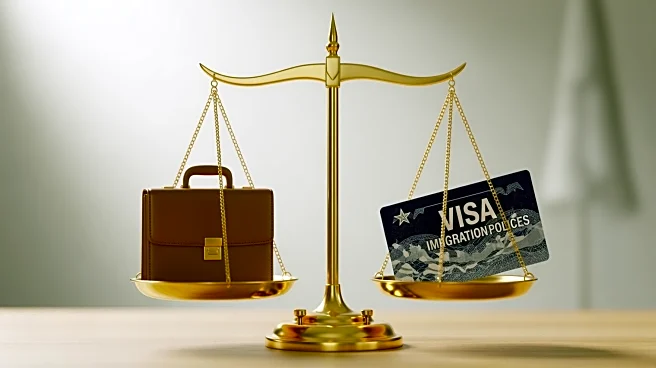What's Happening?
A bipartisan group of U.S. lawmakers has urged President Trump to reconsider a newly imposed $100,000 fee on new H-1B visa applications. The fee, part of a broader reform to tighten oversight of the visa program,
has raised concerns among early-stage employers and small companies, who argue it is prohibitively expensive. The lawmakers warn that the fee could undermine American innovation and competitiveness by making it difficult for startups to recruit and retain talent. The Chamber of Commerce has filed a lawsuit challenging the legality of the fee, arguing it exceeds executive authority and violates immigration laws. The fee applies to new H-1B visa petitions for workers outside the United States, with exemptions available.
Why It's Important?
The $100,000 fee on H-1B visa applications could have significant implications for U.S. businesses, particularly in the technology sector. Critics argue that the fee could stifle innovation by preventing startups from accessing the skilled labor they need to grow. This could lead to a competitive disadvantage for U.S. companies, as talent may move to other countries with more favorable immigration policies. The fee also highlights ongoing debates about immigration reform and the balance between protecting American jobs and fostering economic growth. The outcome of the lawsuit and the administration's response could shape future immigration policy and impact the U.S. economy.
What's Next?
The lawsuit filed by the Chamber of Commerce is ongoing, and its outcome could determine the future of the fee. Lawmakers have invited the administration to collaborate on a bipartisan solution for high-skilled immigration reform. As the debate continues, stakeholders, including businesses, universities, and lawmakers, will likely advocate for changes to the policy. The administration's stance and potential legal challenges will be closely monitored, as they could influence broader immigration reform efforts.









